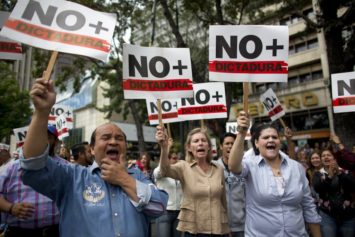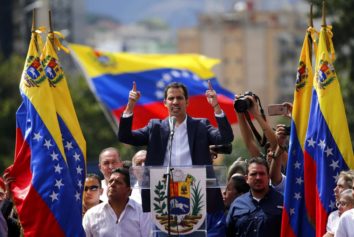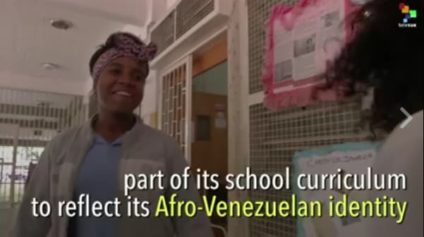Since no one in Venezuela seems to know whether President Hugo Chavez will show up in Caracas in time for his Jan. 10 inauguration, information in the oil-rich South American nation is a real commodity. That may explain why the Venezuelan government on Sunday raided the home of a Twitter user accused of spreading anti-Chavez rumors, and seized his computers.
The entire nation is on edge in anticipation of Thursday’s inauguration because they are unsure whether Chavez will appear, and if he is not well enough to show up, what will happen next? Who will run the country?
Chavez’s critics have taken to social media to spread rumors, including suggestions that Chavez is already dead. Venezuelan officials consider these rumors an attempt to destabilize the government.
Chavez traveled to Cuba a month ago to have his fourth cancer surgery. During his recovery he contracted a serious respiratory infection that is slowing his progress, according to information released last week by Venezuela’s Information Minister Ernesto Villegas. “Comandante Chavez has faced complications as a result of a severe lung infection,” Villegas said in the latest update.
“This infection has caused a breathing insufficiency that requires Comandante Chavez to comply strictly with medical treatment,” the statement said, adding no further details.
The misinformation conspiracy alleged by the Venezuelan government and Chavez supporters is strengthened by the fact that the arrested micro-blogger, Federico Medina Ravell, is the cousin of a prominent opposition figure, Alberto Federico Ravell. Ravell is a well-known journalist and co-founder of Globovision, a major news broadcaster and considered a staunch critic of the Chavez government. Officers from the Bolivarian National Intelligence Service, known as Sebin, confiscated several computers from Medina’s home in Valencia.
The question of what happens if Chavez can’t make it back to Caracas on Jan. 10 to be sworn in by the legislature is not explicitly answered in the Venezuelan constitution. The constitution does say that if the president — who was re-elected three months ago— died or had to step aside, presidential powers should be held temporarily by the president of the National Assembly, Diosdado Cabello, and new elections would be held within 30 days.
But Chavez’s supporters say that the Venezuelan Supreme Court could give him a 90-day extension if he needs more time to recover. They point out that the constitution says the justices could travel to Cuba to swear him in rather than the legislature.
“When? It doesn’t say. Where? It doesn’t say where,” Cabello recently said in a speech to government supporters about the details in the constitution.
After Cabello’s speech last month, Supreme Court President Luisa Estella Morales said that if the question were brought before the court, the justices could rule on whether it is constitutional to postpone the date of the swearing-in ceremony.
Before he left Venezuela, Chavez gave a speech in which he said he may not be able to serve his fourth term because he must undergo his fourth surgery and treatment. He practically pleaded with the populace to choose his vice president and confidant Nicolas Maduro, 52, a former bus driver, as his successor.
If “some circumstance” should prevent him from completing his term or starting his next one, Chavez said, Maduro should not only complete the current term but also be elected president to replace him, “in my firm, irrevocable, absolute and total opinion.… This I ask you from the heart.”


